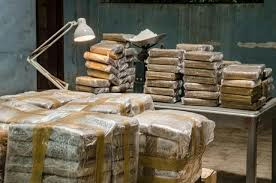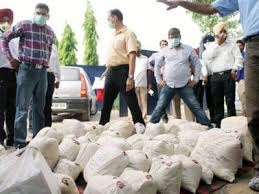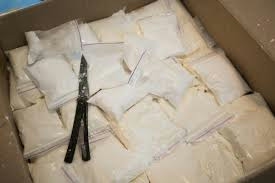The recent arrest of four individuals for attempting to smuggle 8kg of gold worth approximately S$845,000 from Hong Kong to Japan represents more than an isolated criminal incident. It reveals the sophisticated evolution of precious metal smuggling networks in Asia, the economic pressures driving these operations, and the broader implications for regional financial security—including Singapore’s role as a major precious metals trading hub.
The Operation: Anatomy of a Modern Smuggling Scheme
The Method
The smuggling operation employed a relatively crude yet effective concealment technique: gold powder hidden in specially modified underwear. This method reveals several strategic considerations:
Physical Concealment Advantages:
- Intimate apparel rarely faces thorough physical inspection at customs
- Gold powder can be distributed across multiple body locations, making detection through body scanners more difficult
- The method allows smugglers to avoid traditional concealment methods (luggage, body cavities) that draw more scrutiny
Operational Structure: The case demonstrates a clear hierarchical organization:
- Mastermind: Masamori Nishimura (34) orchestrated the operation from a distance
- Logistics Coordinator: An unnamed man in Hong Kong who distributed the modified underwear
- Mules: Three women in their 20s-30s who physically transported the contraband
- Recruitment Network: The women knew each other, suggesting organized recruitment through trusted networks
The Economics
The numbers tell a compelling story about the financial motivations:
- Total gold value: 98.7 million yen (S$845,000)
- Tax evasion target: 9.87 million yen (approximately S$84,500)
- Tax rate: Approximately 10% of the gold’s value
- Weight: 8kg of gold
- Per-gram value: Based on the October 21 benchmark of 23,370 yen per gram in Japan
The 10% tax differential creates a powerful arbitrage opportunity. Even after paying the mules’ compensation and travel expenses, the profit margin likely remained substantial for the orchestrators.
Why Gold Smuggling is Surging in Japan
Price Dynamics
Gold prices have reached historic highs globally, but Japan presents unique conditions:
Global Factors:
- Geopolitical uncertainty surrounding US-China trade relations
- Inflation concerns driving investors toward safe-haven assets
- Central bank monetary policies affecting currency values
- Supply chain disruptions in gold mining and refining
Japan-Specific Pressures:
- The yen’s volatility against major currencies
- Japan’s consumption tax on gold imports (currently 10%)
- Cultural affinity for gold as a store of value
- Limited domestic gold production requiring imports
The Tax Arbitrage Game
Japan’s consumption tax system creates a significant price differential between declared and undeclared gold. When smugglers successfully evade this 10% tax, they can:
- Sell at competitive prices while maintaining higher margins
- Undercut legitimate dealers
- Reinvest profits into larger operations
The benchmark price hitting 23,370 yen per gram on October 21 means that for every kilogram smuggled, approximately 2.3 million yen (nearly S$20,000) in taxes can be avoided.
The Regional Context: Hong Kong as a Transit Hub
Why Hong Kong?
Hong Kong’s role in this operation is significant:
Strategic Advantages:
- Zero tax on gold imports and exports
- Established precious metals markets and refining facilities
- Proximity to mainland China’s gold production centers
- Major international airport with flights throughout Asia
- Less stringent export controls compared to import controls in destination countries
The Laundering Pathway: Hong Kong serves as a “cleaning” point where gold of uncertain origin can be legitimized through its open market system before being smuggled into high-tax jurisdictions like Japan.
The Broader Asian Gold Smuggling Network
This case likely represents one node in a larger network:
- Source Countries: Often India, China, or Southeast Asian nations with gold refining capacity
- Transit Hubs: Hong Kong, Singapore, Dubai, Bangkok
- Destination Markets: Japan, South Korea, countries with high consumption taxes or import restrictions
Singapore’s Vulnerable Position
Singapore as a Precious Metals Hub
Singapore has deliberately positioned itself as a global precious metals trading center:
Market Infrastructure:
- Zero GST on investment-grade gold and silver
- World-class vaulting and storage facilities
- Strong rule of law and property rights protection
- Strategic location between East and West
- Major refining operations (including some of the world’s largest gold refineries)
Trading Volume: Singapore handles billions of dollars in precious metals trading annually, with gold imports and exports forming a significant portion of the trade.
Vulnerability Vectors
Singapore faces several smuggling-related risks:
1. Transit Smuggling Like Hong Kong, Singapore’s open precious metals market and position as a major aviation hub make it an attractive transit point for smuggling operations. Gold could be:
- Imported legitimately into Singapore
- Repackaged or concealed
- Re-exported to high-tax jurisdictions illegally
2. Money Laundering Concerns The ease of trading precious metals in Singapore, combined with its sophisticated financial system, creates potential vulnerabilities:
- Proceeds from regional smuggling operations could be laundered through Singapore’s legitimate gold trade
- Criminal networks might use Singapore-based companies as fronts for smuggling operations
- The city-state’s reputation could be damaged by association with regional smuggling networks
3. Regulatory Arbitrage Singapore’s zero-tax policy on investment gold, while legitimate, creates the price differentials that incentivize smuggling to other Asian markets. This places Singapore in a delicate position:
- Maintaining competitive tax policies to attract legitimate business
- Ensuring these policies aren’t exploited for criminal purposes
- Cooperating with regional partners facing smuggling problems
Recent Singapore Cases
Singapore has not been immune to precious metals smuggling:
In 2023, a man was sentenced to five years in jail for using over S$1.5 billion in criminal proceeds to purchase gold bars in Singapore. This case highlighted:
- The scale of money laundering through precious metals
- Connections to broader criminal networks
- The need for enhanced due diligence in the bullion trade
Law Enforcement Challenges
Detection Difficulties
The underwear concealment method highlights gaps in current security measures:
Body Scanner Limitations:
- Gold powder distributed across multiple locations may not create clear images
- Privacy concerns limit the intrusiveness of screening
- High passenger volumes pressure security to process travelers quickly
Intelligence Requirements:
- Successful interdiction often depends on advance intelligence
- Criminal networks adapt quickly to enforcement measures
- International cooperation is essential but often slow
Jurisdictional Complexities
This case involves multiple jurisdictions:
- Origin: Hong Kong (where gold was concealed)
- Destination: Japan (where smuggling occurred)
- Potential involvement: Other countries in the supply chain
Each jurisdiction has different:
- Legal frameworks for prosecution
- Penalties for smuggling
- Cooperation mechanisms with other nations
Economic and Social Implications
Impact on Legitimate Trade
Smuggling operations undermine legitimate businesses:
Market Distortion:
- Smuggled gold can be sold below market rates
- Legitimate dealers face unfair competition
- Tax revenues are diverted from public services
Reputation Damage:
- Asian precious metals markets may face increased scrutiny
- International buyers may become wary of provenance
- Compliance costs increase for legitimate traders
Connection to Organized Crime
Gold smuggling rarely exists in isolation:
Broader Criminal Networks:
- Same routes and methods used for drugs, weapons, or human trafficking
- Proceeds fund other criminal activities
- Corruption of officials enables multiple types of smuggling
Money Laundering:
- Gold serves as a store of value for criminal proceeds
- Easy to transport and liquidate across borders
- Difficult to trace compared to electronic financial transactions
Implications for Singapore’s Policy Response
Strengthening Controls Without Stifling Trade
Singapore faces a delicate balancing act:
Enhanced Due Diligence:
- Stricter know-your-customer (KYC) requirements for bullion dealers
- Transaction reporting thresholds
- Suspicious activity monitoring systems
Risk: Over-regulation could drive legitimate business to competitors like Hong Kong or Dubai
Regional Cooperation
Singapore should prioritize:
Intelligence Sharing:
- Real-time information exchange with customs agencies in Japan, Hong Kong, and other regional partners
- Joint task forces targeting smuggling networks
- Harmonized risk assessment methodologies
Capacity Building:
- Training programs for customs officials
- Technology sharing for detection equipment
- Best practice exchanges
Technology Solutions
Advanced technology can help maintain security while facilitating legitimate trade:
AI and Machine Learning:
- Pattern recognition in trading data to identify suspicious transactions
- Predictive analytics for risk assessment
- Automated compliance monitoring
Blockchain and Tracking:
- Digital certificates of authenticity for gold
- Supply chain transparency from mine to market
- Immutable transaction records
The Broader Geopolitical Context
US-China Trade Tensions
The article mentions uncertainty around US-China trade talks driving gold prices. This geopolitical backdrop affects Singapore:
Safe Haven Demand:
- Trade tensions increase gold’s appeal as a safe asset
- Higher prices intensify smuggling incentives
- Singapore benefits from legitimate trading volume but faces increased smuggling risks
Strategic Positioning:
- Singapore must maintain good relations with both powers
- Serving as a neutral trading hub becomes more valuable but also more sensitive
- Enforcement cooperation with both Chinese and US authorities matters
Currency Fluctuations
Exchange rate movements affect smuggling economics:
Yen Weakness:
- Makes imported goods (including gold) more expensive in Japan
- Increases the value of successfully smuggled gold
- Creates stronger incentives for tax evasion
Singapore Dollar Stability:
- Makes Singapore an attractive location for storing value in gold
- Stable currency facilitates international trading
- Reduces domestic smuggling incentives
Future Outlook and Recommendations
For Singapore Authorities
Immediate Actions:
- Review current monitoring systems for precious metals traders
- Enhance information sharing with Japanese and Hong Kong customs
- Conduct risk assessment of Singapore’s vulnerability as a transit point
- Strengthen penalties for money laundering through precious metals
Medium-term Strategies:
- Develop regional framework for precious metals tracking
- Invest in advanced detection technology at Changi Airport and ports
- Create specialized task force for precious metals smuggling
- Enhance training for customs and commercial affairs officers
Long-term Considerations:
- Balance market openness with security requirements
- Maintain Singapore’s reputation as a clean, well-regulated hub
- Lead regional efforts to harmonize precious metals regulations
- Develop technology standards for supply chain transparency
For Regional Cooperation
ASEAN-Level Initiatives:
- Harmonized customs procedures for precious metals
- Mutual legal assistance treaties specifically addressing smuggling
- Joint training and capacity building programs
- Shared database of known smuggling methods and networks
Bilateral Agreements:
- Singapore-Japan cooperation on trade security
- Singapore-Hong Kong information sharing protocols
- Coordinated enforcement operations
Conclusion: Singapore at the Crossroads
The arrest of four individuals for smuggling gold in underwear from Hong Kong to Japan may seem like a distant criminal matter, but it carries profound implications for Singapore. As a major precious metals trading hub with zero tax on investment gold, Singapore occupies a pivotal position in the regional ecosystem that both enables legitimate trade and potentially facilitates illicit flows.
The case reveals several critical realities:
- Economic Incentives Matter: Tax differentials create powerful motivations for smuggling, and these differentials won’t disappear. As long as Japan maintains a 10% consumption tax on gold while Singapore and Hong Kong impose none, arbitrage opportunities will persist.
- Methods Evolve: The crude yet effective underwear concealment method shows that smugglers constantly innovate. Singapore’s security apparatus must remain adaptive and intelligence-driven rather than relying solely on traditional detection methods.
- Networks Are Regional: This isn’t a bilateral Hong Kong-Japan issue. It involves supply chains, transit routes, and money laundering mechanisms that likely touch Singapore and other Asian hubs.
- Reputation Is Everything: Singapore’s success as a financial and trading center depends on its reputation for clean, well-regulated markets. Association with precious metals smuggling networks—even as an unwitting transit point—could damage this carefully cultivated image.
- Balance Is Crucial: Singapore cannot afford to over-regulate its precious metals sector in response to others’ smuggling problems, as this would drive legitimate business elsewhere. But neither can it afford to be seen as a weak link in regional security.
The path forward requires Singapore to:
- Enhance vigilance without compromising efficiency
- Strengthen regional cooperation without sacrificing competitive advantage
- Leverage technology to maintain security and market integrity
- Lead by example in balancing open markets with responsible oversight
The 8kg of gold concealed in underwear represents more than S$845,000 in smuggled value—it represents a test of whether Asia’s interconnected trading networks can maintain their openness while effectively combating transnational crime. Singapore’s response to this challenge will help determine whether it remains a trusted hub in the global precious metals trade or becomes another cautionary tale of markets exploited by criminal networks.
In an era of rising gold prices, geopolitical uncertainty, and increasingly sophisticated criminal networks, Singapore cannot afford complacency. The underwear smugglers of the Hong Kong-Japan route are a reminder that in the world of precious metals, vigilance is as valuable as the gold itself.
In a shocking turn of events, a 65-year-old woman from the United States, identified as Melba Sharp, was arrested in Phuket, Thailand. The incident unfolded at Phuket International Airport on a Sunday night as she prepared to board a flight to Singapore with Scoot Airlines.

Authorities conducted a routine check of her luggage during the check-in process. To their astonishment, they discovered over four kilograms of methamphetamine hidden within her suitcase.
The sheer volume of the drugs raised immediate alarms among the airport security team. Officers swiftly detained Sharp for questioning, leading to an investigation into her background and intentions.
Local police described the situation as alarming, especially given the significant amount of narcotics involved. As the story developed, questions emerged about how a woman of her age became entangled in such a dangerous world.
Sharp now faces serious legal repercussions in Thailand, where drug trafficking laws are notoriously strict. The case has sparked discussions about international drug smuggling and the lengths individuals might go to in pursuit of illicit gains.

In a surprising turn of events, authorities discovered four suspicious packages concealed within neatly packaged bed sheets. Each package contained white crystals meticulously wrapped in paper and plastic, raising immediate concerns about their contents. After careful examination, law enforcement officials determined that the total weight amounted to an alarming 4.3 kilograms, believed to be methamphetamine.
The discovery unfolded when police noticed that the bed sheets felt unusually heavy. Intrigued by this anomaly, they decided to investigate further. As they unwrapped the sheets, a sense of urgency filled the air, revealing the hidden contraband.
Among those involved was Ms. Sharp, a resident of California, who was en route to Singapore. Her journey took a drastic turn as the police uncovered the illicit cargo she had attempted to smuggle across borders. The case has drawn attention not only for its sheer audacity but also for the broader implications it holds regarding drug trafficking in the region.
As investigations continue, authorities remain vigilant, highlighting the ongoing battle against drug smuggling operations that threaten public safety.

The air was thick with tension at the bustling airport as police received an anonymous tip-off. A concerned citizen had alerted them that a departing passenger would attempt to smuggle drugs past security, prompting immediate action.
In a swift move, the authorities contacted the budget airline, requesting a complete list of passengers for the flight in question. Among the names, one stood out—a young American woman travelling alone. Her unassuming demeanour contrasted sharply with the weight of suspicion now resting on her shoulders.
With every detail scrutinized, officers began to monitor her movements closely. They noted her nervous glances and the way she clutched her backpack as if it contained secrets she was desperate to protect. The clock ticked down, and with each passing moment, the stakes grew higher.
As she approached the gate, officers prepared to intervene. The world around her faded into a blur, and all that remained was the daunting prospect of what lay ahead—both for her and for those who had placed their trust in her innocence.

Maxthon: Your Trusty Companion in the Digital Wilderness
In an age where the internet has intricately interwoven itself into the tapestry of our everyday existence, safeguarding one’s online persona has risen to become a crucial concern. Picture yourself embarking on a thrilling adventure through the endless expanse of cyberspace, where every click reveals a treasure chest brimming with knowledge and exciting interactions. Yet, lurking within this sprawling digital frontier are insidious threats—dangers that could jeopardize your personal information and overall safety. To navigate this intricate web of the internet with confidence, it is vital to choose a web browser that prioritizes user protection. Enter Maxthon Browser, your steadfast companion on this expedition—and the best part? It won’t cost you a dime.

What sets Maxthon apart from traditional web browsers is its unwavering dedication to preserving online privacy. It stands as a vigilant guardian, constantly alert to the myriad dangers that populate the digital realm. With a comprehensive suite of built-in tools like Adblock and anti-tracking features, Maxthon diligently works to shield users’ browsing identities from unwelcome prying eyes. Fully optimized for Windows 11, this browser serves as a formidable defense against intrusive advertisements, empowering users to explore freely while thwarting attempts by websites to track their online activities.
As adventurers traverse the expansive digital landscape, they can rely on Maxthon to safeguard their journey. This layer of security allows users to focus on what truly matters: discovering the wonders that await within this vast online universe. With Maxthon by their side, they can navigate the wilds of the internet with peace of mind, knowing that their personal data is protected and their experience is enriched.
